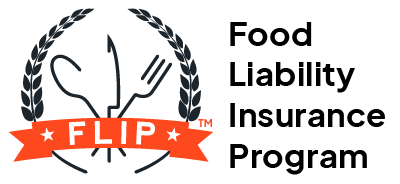With its thriving food truck scene and diverse customer base, the Old North State is a great place to start a mobile food business. But before you gas up and hit the road, you’ll need to meet several North Carolina food truck requirements, including acquiring licenses and permits, as well as getting food truck insurance.
If you’re ready to bring your delicious dishes to the fine folks of North Carolina, we’ve got you covered with our handy guide to navigating the mobile food truck world.
Understand Food Truck Requirements in North Carolina
There are several important requirements North Carolina food truck owners need before applying for permits and licenses, including:
- Business name: Choose a short, catchy name that’s easy to remember and describes your menu items.
- Business classification: Food trucks are typically sole proprietorships, though partnerships and limited liability companies (LLCs) are also options for your business.
- Employer identification number (EIN): Register with the Internal Revenue Service (IRS) to receive your EIN, a nine-digit number used for tax purposes.
- Certificate of Insurance (COI): A COI outlines your policy limits and coverage and is often a requirement to attend a North Carolina food truck festival.
- Plan Review Application: This review determines if your food truck meets North Carolina’s food code regulations and is required before you can obtain a business license.
- Business plan: An effective business strategy helps turn your dream into a realistic roadmap for success. Many banks and lenders require a business plan before providing financing and grants.
Pro Tip: North Carolina Department of Commerce (NCDC) offers a helpful overview of the ins and outs of starting a business, obtaining financing, and checking if your business name is available.
Food Truck Licenses in North Carolina
Before setting up shop, food trucks in North Carolina need the necessary licenses and permits to operate.
Instead of a state-level business license, each city in North Carolina has its own specific license and permit regulations. Always check with local government offices for the most up-to-date licensing information.
Business License
- Recognizes your food truck business in the state of North Carolina.
- Cost: Varies by city/county
- Where to get it: Your local government office
Mobile Food Unit License
- Local-level governments often require this permit before you operate.
- Cost: Varies by city/county
- Where to get it: Your city’s health department
Sales & Use Tax Permit
- Allows you to collect sales tax through your mobile food business.
- Cost: Free
- Where to get it: North Carolina Department of Revenue
Liquor License
- Granted temporarily for special events and one-time occasions. There is no long-term liquor license available for food trucks in North Carolina.
- Cost: $500
- Where to get it: Alcoholic Beverage Control Commission of North Carolina
Follow North Carolina Food Truck Laws
North Carolina has several laws that ensure your food truck operates safely. Violating these laws can result in fines, a suspended license, and even the closure of your business.
Laws every food truck owner should know include:
- Commissary agreement: North Carolina commissary law requires a commercial kitchen for food prep and storage. In most cases, you’ll need to submit a commissary application for approval.
- Fire code compliance: North Carolina food truck regulations require your compliance with fire code and safety inspection requirements.
- Zoning restrictions: Zoning regulations vary by city, though typically include distance requirements and designated locations of operation.
- Health inspections: Local health departments will conduct both annual and random health inspections of your food truck, which can involve a pre-licensing inspection.
- Wastewater Disposal: All sewage and gray water must be properly disposed of at a commissary or approved wastewater facility.
Pro Tip: Use our health inspection checklist to make sure your truck is prepared and ready to pass!
Get North Carolina Food Truck Insurance
Serving food to the public comes with unique risks that, without insurance, could negatively impact your business. In fact, the average food truck claim costs $6,271. Without insurance, that money could come out of your pocket.
Let’s say you’re attending the Lexington Barbecue Festival when a gust of wind knocks your awning into a neighboring food truck, causing significant damage. Or a customer gets food poisoning from an item on your menu and holds you liable for medical expenses and lost wages.
North Carolina food business insurance from Food Liability Insurance Program (FLIP) helps cover some or all of the cost of claims like these, so you can keep moving forward without the financial burden.

Learn the Cost of Starting a Food Truck in North Carolina
The U.S. Chamber of Commerce estimates that, on average, food truck entrepreneurs spend over $28,000 annually for permits, legal compliance, and licenses.
Other expenses for starting a food truck business in North Carolina include:
- Food truck
- New: $75,000–$150,000
- Used: $30,000–$70,000
- Cooking equipment
- Grill/griddle: $500-$1,500
- Deep fryer: $800-$2,000
- Oven: $1,500–$5,000
- Refrigeration
- Refrigerator/freezer: $1,500–$3,500
- Prep table: $300–$1,200
- Safety and sanitation
- Commercial sink: $1,200–$2,500
- Handwashing sink: $300–$600
- Fire suppression system: $1,500–$3,000
- Technology
- Point of Sale (POS) system: $500–$2,000
- Inventory management software: $20–$200 per month
Pro Tip: Ensure you’re breaking even with a smart menu pricing strategy that covers your expenses and earns a profit!
Sell at North Carolina Food Truck Festivals
Festivals, fairs, and other local events provide great opportunities for North Carolina food trucks to both serve customers and network with other business owners.
If you’re planning to attend a food truck festival in North Carolina, check out these popular events:
- Winston-Salem Food Truck Festival
- North Carolina Food Truck Fair
- Raleigh Food Truck Rodeo
- Carolina BBQ Festival
Pro Tip: Competition for festival spots can be fierce, especially during the peak spring and summer months. Learn essential tips for getting your food truck into festivals and increasing your chances of getting accepted!
FAQs About Starting a Food Truck in North Carolina
Are There Specific Zoning Regulations for Food Trucks in North Carolina?
Yes, each city in North Carolina has unique zoning regulations, which often include:
- Parking: Some cities only allow food trucks to operate on specific streets and at certain times. Always check with local government offices before rolling out.
- Proximity to other businesses: Each city dictates how close food trucks can park to restaurants, schools, and residential areas.
What Are the Fire Safety Requirements for Food Trucks in North Carolina?
Following North Carolina food truck fire regulations is crucial to the success of your business. Make sure your cooking equipment, propane system, and fire suppression systems are up-to-date and functioning properly. You’ll also need fire extinguishers readily available to employees in the event of an emergency.
Does North Carolina Have a Food Truck Association I Can Join?
Yes, food truck owners can join the Charlotte Food Truck Association (CFTA) for community support, information about upcoming job opportunities, and access to a classifieds section for buying used equipment.

Clint Hale
Ohio-based copywriter Clint Hale leverages his experience as an enthusiast of regional eateries and fast-casual dining. He also holds a B.A. in Communication Studies from Kent State University. Before working for FLIP, he was a Senior Copywriter at an SEO marketing agency. Fully trained on the ins and outs of Food Liability Insurance Program, Clint writes to bridge the gap between food and beverage entrepreneurs and the policies that protect their businesses.
Ohio-based copywriter Clint Hale leverages his experience as an enthusiast of regional eateries and fast-casual dining. He also holds a B.A. in Communication Studies from Kent State University. Before working for FLIP, he was a Senior Copywriter at an SEO marketing agency. Fully trained on the ins and outs of Food Liability Insurance Program, Clint writes to bridge the gap between food and beverage entrepreneurs and the policies that protect their businesses.

